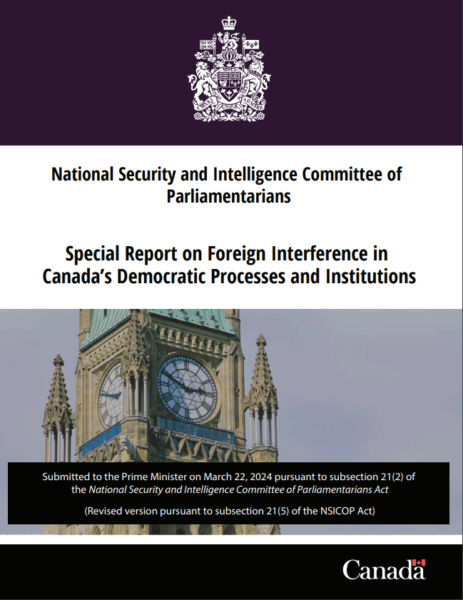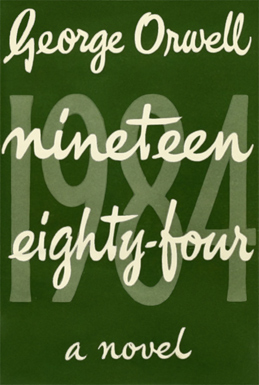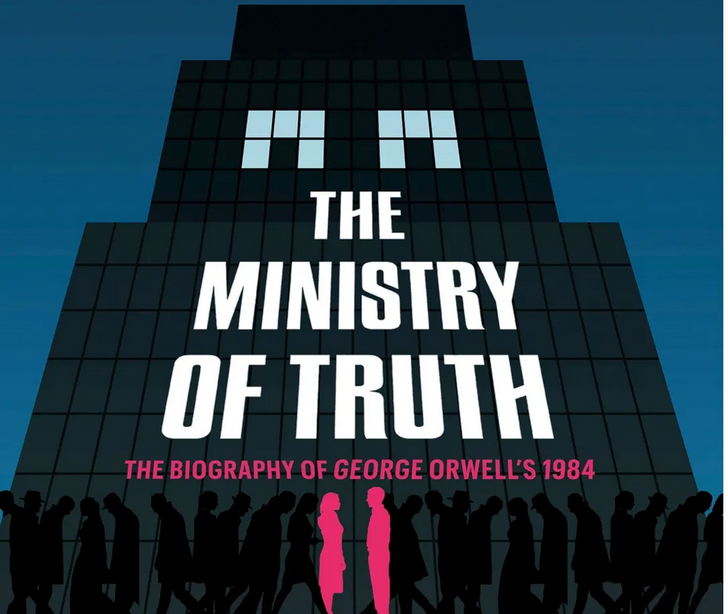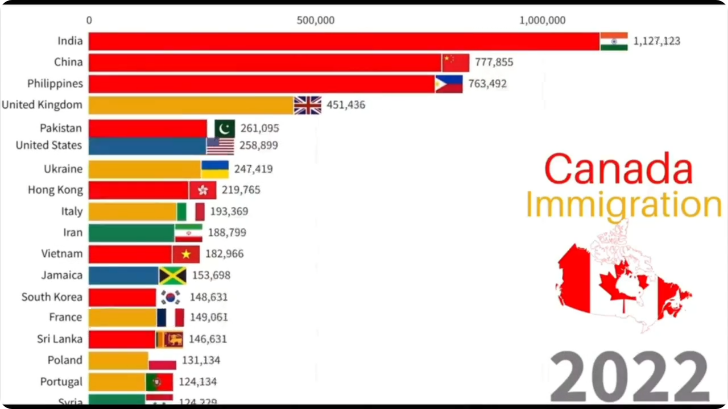I keep replaying Scott Reid’s comment in my mind […] “Paul Martin is the wire brush that will scrub clean this stain on Canadian politics.”
Honestly, now, if you moved this metaphor any closer to the bathroom, there’d be no room for anybody to sit down. What have we come to when the communications director for the prime minister of Canada comes within an ace of referring to his own party as a filthy toilet in need of some elbow grease?
Colby Cosh, ColbyCosh.com, 2005-04-09.
June 19, 2024
QotD: Canada’s Liberal Party
June 18, 2024
Freddie deBoer contra J.J. McCullough on Conspiracy Theories
I saw JJ’s latest video pop up on my YouTube subscriptions page, read the headline and winced slightly. I generally like JJ’s videos even when I disagree with his presentation or interpretation and from the title, I thought “No, ‘many conspiracy theories’ did NOT ‘turn out to be true'” would require a fair bit of, uh, curation of the theories that get discussed. Freddie deBoer — who I disagree with much more than I do with McCullough — had a similar reaction:
The latest video from conservative Canadian YouTuber JJ McCullough displays many of the attributes that make his perspective unique — he’s genuinely a right-wing figure but an arch institutionalist, a gay Millennial with the kind of vague social libertinism common to a lot of libertarian-leaning conservatives but something of a scold, a Canadian patriot who relentlessly defends the United States from the kinds of criticism of Americanah that you might associate with Europe or, well, Canada — critiques of our provincialism, our consumerism, our boorish tendency to shove the rest of the world around. McCullough likes all of that stuff, more or less, while living a cosmopolitan and vaguely-arty lifestyle in groovy Vancouver. He’s perhaps best known for his war with Montreal, Francophone Canadians, and the entire province of Quebec, which fits his general esteem for a certain kind of capital-R Reasonable Anglophilia.
He reminds me, strangely, of a certain kind of secular anti-atheist, the type who still gets mad about the New Atheists despite the complete collapse of that subculture and whose own lack of belief doesn’t prevent them from waxing poetic about the glories of religion. I have a friend from grad school who grew up in an extremely repressive Christian community when she was young, and who describes leaving as an “escape”. (The kind of community where she and her sisters wore wrist-to-ankle dresses every day of their lives no matter the Oklahoma heat, weren’t allowed TV or radio, absorbed lots of corporal punishment, that sort of thing.) She has very, very little patience for people who are so annoyed by internet atheists that they become in effect advocates for religion; as she says, this kind of vague fondness for religion among the irreligious could only occur to someone who never had to live the way she did. I sort of see the same thing in McCullough — he idealizes certain aspects of America’s ethos because he has never had to live with the consequences of being surrounded by people who believe in it, who consciously or unconsciously demand that everyone else believe in it.
Anyhow, this new video is about conspiracy theories. Conspiracy theories are a good topic for understanding McCullough’s very particular ideological makeup. Conspiracy theories are famously a cross-ideological phenomenon, with both left conspiracy theories and right conspiracy theories but also conspiracy theories that don’t fit neatly into either, like 9/11 trutherism. As I said, McCullough is an institutionalist, a small-but-good government sort of guy (or so I take it) who places a great deal of value in official claims, institutions, and experts, and so he’s naturally distrustful of conspiracy theories. And he demonstrates that antipathy in this video through poking holes in a few clickbaity articles listing conspiracy theories that turned out to be true. This all amounts to feasting on a banquet of low-hanging fruit, but it’s not an illegitimate way to approach the question. I just don’t like his conclusions.
The key to McCullough’s bit here is that he doesn’t dispute that the named conspiracy theories (or “conspiracy theories”) that are asserted to be true are true. Rather, he operates by insisting that every identified conspiracy theory is in fact not a conspiracy theory according to his preferred definition. It’s not sufficient for a conspiracy theory to be broadly thought of as a conspiracy theory; it has to comport to specific rules he has devised for what a conspiracy theory entails. Effectively, that means that a conspiracy theory is only a conspiracy theory if it satisfies criteria endorsed by no one but JJ McCullough. I can’t decide if this is an isolated demand for rigor or a No True Scotsman, but either way, McCullough is here insisting on an unusually stringent definition of a conspiracy theory for the purpose of dismissing the idea that any conspiracy theories are true. And there’s a version of this that isn’t entirely wrong; there’s a tautological sense in which all conspiracy theories are false because being false is part of that definition of a conspiracy theory. But McCullough isn’t using that definition, just a particularly odd one that makes his task easier.
So the fact that cigarette manufacturers knew that cigarettes were very bad for your health but conspired to hide this fact from the public is not a conspiracy theory, according to McCullough, because other people of that era suspected that cigarettes caused lung cancer. (Actually proving that took a very long time, at least according to modern standards of causality.) I find this argument powerfully strange! You had a group of powerful people, they indisputably knew that cigarettes were very bad for your health, they indisputably conspired to suppress that information, they were fairly effective at that task. The fact that some early whistleblowers tried to raise the alarm is simply irrelevant. Check out my own proprietary formula.
Group of Powerful or Influential People + Nefarious Intent + Secrecy + Active Conspiring + Negative Consequences, Real or Potential = Conspiracy TheoryThat’s a conspiracy, brother, and the tobacco company bad behavior fits. Long before information about their coverups became public knowledge, people were talking about the possibility that the tobacco companies were up to that exact bad behavior. Theorizing, you might say.
US “birthright citizenship”
Theophilus Chilton argues against the legality of “birthright citizenship”:

“American Flag” by JeepersMedia is licensed under CC BY 2.0
One of the benefits of Donald Trump’s involvement in politics over the last ten years has been that it opened up a robust national discussion about an issue that up until recently had been largely ignored by the political class. This discussion is about so-called “birthright citizenship”, the idea that whenever a foreign national (regardless of legal status and with a very few exceptions) has a child on American soil, this child automatically becomes an American citizen from birth. This approach to citizenship has been the de facto (though not de jure) approach to the issue of “anchor babies”, the children of illegal aliens who come to the United States so that they can have their children here, thus allowing the parents to remain as well, usually helping themselves to generous American benefit monies.
Defenders of unrestricted birthright citizenship – primarily found among liberals, establishment GOP types, and the more uninformed types of libertarians – adamantly argue from the 14th amendment’s Citizenship Clause that birthright citizenship is not only legal, but is in fact constitutionally protected, and is what the 14th amendment has meant all along. They often try to buttress their arguments by appealing to English common law with its historical provisions for birthright citizenship. However, is this sort of “swim a river, fill our quiver” approach really what the 14th amendment meant? Is it really what English common law, which forms the basis for much of our own law and constitutional interpretation, historically upheld? The answer to these questions is, “No”. Let’s look at some of the history behind this issue.
The crux about which the discussion revolves is the Citizenship Clause found in the 14th amendment, Section 1,
All persons born or naturalized in the United States, and subject to the jurisdiction thereof, are citizens of the United States and of the State wherein they reside.
More specifically, what is at issue is the phrase, “and subject to the jurisdiction thereof”. Clearly, the clause was not intended to convey American citizenship to an unlimited pool of children born to aliens on American soil. If this had been the case, then the phrase under discussion would not have been included. Obviously, some limits were intended, those circumscribed by the intent of being “subject to the jurisdiction thereof”.
So what were these limits? Typically, it will be pointed out that the limits due to this jurisdictional issue were that citizenship was not being conveyed to children born of ambassadors and others aliens employed by their foreign governments, nor was it being conveyed to members of various Indian tribes which exercised sovereign powers within their own territories (this latter was rescinded by an act of 1924 which granted Indian tribes full American citizenship). Were these the only restrictions on birthright citizenship intended by the author and debaters of the 14th amendment?
No, actually. Let’s understand what the original intention of the 14th amendment was, which was to grant American citizenship to former black slaves and their children, and to prevent these newly freed citizens from being denied citizenship rights by certain of the southern states. That’s it. This was made clear by Sen. Jacob Howard, who authored the amendment in 1866, who clearly provided the intent for this section of the amendment,
Every person born within the limits of the United States, and subject to their jurisdiction, is, by virtue of natural law and national law, a citizen of the United States. This will not, of course, include persons born in the United States who are foreigners, aliens, who belong to the families of ambassadors or foreign ministers accredited to the government of the United States, but will include every other class of persons. It settles the great question of citizenship and removes all doubt as to what persons are or are not citizens of the United States. This has long been a great issue in the jurisprudence and legislation of this country.
Clearly, other classes of foreign citizens were intended besides the children of ambassadors and other diplomatic personnel. Indeed, Howard’s statement appears to be quite all-encompassing – if taken at face value, it would appear that he did not even intend the 14th amendment to grant citizenship to the children of foreign nationals here legally, much less to those here illegally.
Spice: King Of The Poor Man’s Kitchen
Townsends
Published Mar 3, 2024One of the questions we seek to answer on our channel is that of the plight of poor folks in American history. What did they eat? How did they dress? Did they have enjoyment in life? They didn’t have the best cuts of meat or the most sought after ingredients. What they did have was plenty of flavor! Spice is the king of the poor man’s kitchen.
(more…)
QotD: The peoples incorporated or “allied” to Rome in the Republic’s Italian expansion
In one way, pre-Roman Italy was quite a lot like Greece: it consisted of a bunch of independent urban communities situated on the decent farming land (that is the lowlands), with a number of less-urban tribal polities stretching over the less-farming-friendly uplands. While pre-Roman urban communities weren’t exactly like the Greek polis, they were fairly similar. Greek colonization beginning in the eighth century added actual Greek poleis to the Italian mix and frankly they fit in just fine. On the flip side, there were the Samnites, a confederation of tribal communities with some smaller towns occupying mostly rough uplands not all that dissimilar to the Greek Aetolians, a confederation of tribal communities and smaller towns occupying mostly rough uplands.
In one very important way, pre-Roman Italy was very much not like Greece: whereas in Greece all of those communities shared a single language, religion and broad cultural context, Roman Italy was a much more culturally complex place. Consequently, as the Romans slowly absorbed pre-Roman Italy into the Roman Italy of the Republic, that meant managing the truly wild variety of different peoples in their alliance system. Let’s quickly go through them all, moving from North to South.
The Romans called the region south of the Alps but north of the Rubicon River Cisalpine Gaul and while we think of it as part of Italy, the Romans did not. That said, Gallic peoples had pushed into Italy before and a branch of the Senones occupied the lands between Ariminum and Ancona. Although Gallic peoples were always a factor in Italy, the Romans don’t seem to have incorporated their communities as socii; indeed the Romans were generally at their most ruthless when it came to interactions with Gallic peoples (despite the tendency to locate the “unassimilable” people on the Eastern edge of Rome’s empire, it was in fact the Gauls that the Romans most often considered in this way, though as we will see, wrongly so). That’s not to say that there was no cultural contact, of course; the Romans ended up adopting almost all of the Gallic military equipment set, for instance. In any event, it wouldn’t be until the late first century BCE that Cisalpine Gaul was merged into Italy proper, so we won’t deal too much with the Gauls just yet. I do want to note that, when we are thinking about the diversity of the place, even to speak of “the Gauls” is to be terribly reductive, as we are really thinking of at least half a dozen different Gallic peoples (Senones, Boii, Inubres, Lingones, etc) along with the Ligures and the Veneti, who may have been blends of Gallic and Italic peoples (though we are more poorly informed about both than we’d like).
Moving south then, we first meet the Etruscans, who we’ve already discussed, their communities – independent cities joined together in defensive confederations before being converted into allies of the Romans – clustered on north-western coast of Italy. They had a language entirely unrelated to Latin – or indeed, any other known language – and their own unique religion and culture. The Romans adopted some portions of that culture (in particular the religious practices) but the Etruscans remained distinct well into the first century. While a number of Etruscan communities backed the Samnites in the Third Samnite War (298-290 BC) culminating in the Battle of Sentinum (295) as a last-ditch effort to prevent Roman hegemony over the peninsula, the Etruscans subsequently remained quite loyal to Rome, holding with the Romans in both the Second Punic and Social Wars. It is important to keep in mind that while we tend to talk about “the Etruscans” (as the Romans sometimes do) they would have thought of themselves first through their civic identity, as Perusines, Clusians, Populinians and so on (much like their Greek contemporaries).
Moving further south, we have the peoples of the Apennines (the mountain range that cuts down the center of Italy). The people of the northern Apennines were the Umbri (that is, Umbrian speakers), though this linguistic classification hides further cultural and political differences. We’ve met the Sabines – one such group, but there were also the Volsci and Marsi (the latter particularly well known for being hard fighters as allies to Rome; Appian reports that the Marsi had a saying prior to the Social War, “No Triumph against the Marsi nor without the Marsi”). Further south along the Apennines were the Oscan speakers, most notably the Samnites (who resisted the Romans most strongly) but also the Lucanians and Paelignians (the latter also get a reputation for being hard fighters, particularly in Livy). The Umbrian and Oscan language families are related (though about as different from each other as Italian from Spanish; they and Latin are not generally mutually intelligible) and there does seem to have been some cultural commonality between these two large groups, but also a lot of differences. Their religion included a number of practices and gods unknown to the Romans, some later adopted (Oscan Flosa adapted as Latin Flora, goddess of flowers) and some not (e.g. the “Sacred Spring” rite, Strabo 5.4.12).
Also Oscan speakers, the Campanians settled in Campania (surprise!) at some early point (perhaps around 1000-900 BC) and by the fifth century were living in urban communities politically more similar to Latium and Etruria (or Greece, which will make sense in a moment) than their fellow Oscan speakers in the hills above, to the point that the Campanians turned to Rome to aid them against the also-Oscan-speaking Samnites. The leading city of the Campanians was Capua, but as Fronda (op. cit.) notes, they were meaningful divisions among them; Capua’s very prominence meant that many of the other Campanians were aligned against it, a division the Romans exploited.
The Oscans struggled for territory in Southern Italy with the Greeks – told you we’d get to them. The Greeks founded colonies along the southern part of Italy, expelling or merging with the local inhabitants beginning in the seventh century. These Greek colonies have distinctive material culture (though the Italic peoples around them often adopted elements of it they found useful), their own language (Greek), and their own religion. I want to stress here that Greek religion is not equivalent to Roman religion, to the point that the Romans are sticklers about which gods are worshipped with Roman rites and which are worshipped with the ritus graecus (“Greek rites”) which, while not a point-for-point reconstruction of Greek rituals, did involve different dress, different interpretations of omens, and so on.
All of these peoples (except the Gauls) ended up in Rome’s alliance system, fighting as socii in Rome’s wars. The point of all of this is that this wasn’t an alliance between, say, the Romans and the “Italians” with the latter being really quite a lot like the Romans except not being from Rome. Rather, Rome had constructed a hegemony (an “alliance” in name only, as I hope we’ve made clear) over (::deep breath::) Latins, Romans, Etruscans, Sabines, Volsci, Marsi, Lucanians, Paelignians, Samnites, Campanians, and Greeks, along with some people we didn’t mention (the Falisci, Picenes – North and South, Opici, Aequi, Hernici, Vestini, etc.). Many of these groups can be further broken down – the Samnites consisted of five different tribes in a confederation, for instance.
In short, Roman Italy under the Republic was preposterously multicultural (in the literal meaning of that word) … and it turns out that’s why they won.
Bret Devereaux, “Collections: The Queen’s Latin or Who Were the Romans, Part II: Citizens and Allies”, A Collection of Unmitigated Pedantry, 2021-06-25.
June 17, 2024
For want of a security clearance, the (potential) traitors escaped scot-free
In the free-to-cheapskates section of this week’s Dispatch from The Line, we get a summary of the state of brain-freeze in Parliament over the NSICOP (National Security and Intelligence Committee of Parliamentarians) report, that in a functioning state would have triggered much more action than it has in the dysfunctional Dominion:

The cover of the NSICOP special report on foreign interference (PDF – https://nsicop-cpsnr.ca/reports/rp-2024-06-03/special-report-foreign-interference.pdf )
The lead story this week, clearly, was the continuing fallout from the NSICOP report last week. Because of this report, even though there is much that we do not know, there are absolutely some things that are clearly established. Let’s run through some of the key points that are uncontested and draw some very modest and safe conclusions from them.
Here are facts.
- There are multiple parliamentarians, meaning members of the House of Commons and the Senate, who have been deemed by eight of their colleagues to be engaged in activities with hostile foreign powers on either a witting or semi-witting basis.
- The prime minister and the PMO have been aware of who these individuals are for at least a month, if not longer. That is when NSICOP filed its unredacted report to them for review, as required.
The above facts are unchallenged. Now let’s draw a few conclusions.
The phrasing of the NSICOP report, as well as both Elizabeth May’s and Jagmeet Singh’s press conferences this week, led us to believe some of these individuals are still sitting in both the House of Commons and the Senate. We acknowledge that Elizabeth May and Jagmeet Singh differ considerably on the severity of what these individuals are alleged to have done, but both seem to agree that the relevant parties, in at least some cases, remain in Parliament.
The prime minister, as the person responsible for the administrative and legal apparatus of government, could call the Clerk of the Privy Council, the Director of CSIS, the minister of public safety and others as necessary into his office today, and inform them that he would be making the names public, and that it would be the responsibility of those individuals to figure out how that could be accomplished while protecting intelligence sources and methods. At this time, there is no indication that he has done so, or has any interest in doing so.
So we got the grotesque theatre that was the House of Commons this week. The government has spent the last week and change challenging various opposition leaders to obtain security clearances so that they could view information that the prime minister has had for at least a month, and perhaps longer, even though both the Security of Information Act and the National Security and Intelligence Committee of Parliamentarians Act (depending on the auspices under which their security clearances were issued) prevents them from disclosing what they read.
And, therefore, doing anything about it. Because to remove a caucus member would be to reveal it, and if a leader has no caucus members that are implicated, there is no urgency to their reading the report.
Protecting the national security of Canada, and the democratic institution of parliament itself, is the prime minister’s job before it is anyone else’s. And the prime minister has had this information for at least a month.
It’s worth repeating that because we want you to envision something. Imagine there are three U.S. Senators accused of aiding and abetting a foreign power, and Joe Biden knew about it for a month.
When do you think impeachment proceedings would start?
Boris Johnson was unceremoniously dumped by his party for lying about throwing a party during COVID lockdowns (and we have no problem with that). Our prime minister has known that there are people currently sitting in parliament that have turned themselves into intelligence assets for hostile foreign powers for a month, and …
… the government would like you to know that it thinks Pierre Poilievre should get a security clearance so that he can read the documents.
We think Poilievre should, too. Because here’s the thing. The Security of Information Act says right there in Section 24 “No prosecution shall be commenced for an offence against this Act without the consent of the Attorney General”.
That reads to us like so: Pierre Poilievre can read those documents, release the names, and then dare Justin Trudeau to prosecute him. Indeed, anyone with the names could.
Your Line editors have raised this before on the podcast, but it bears repeating. Canada’s international reputation has taken a lot of hits lately. So imagine if you would, gentle reader, a situation where Justin Trudeau’s Attorney General signs off on having his political opponent arrested for revealing that hostile foreign powers have coerced sitting MPs into becoming intelligence assets … especially if one or more of those MPs is revealed to be a Liberal.
That’s a front page international news story. We’d look like a banana republic. Our international reputation would take decades to recover.
Spoiler: we already do look like a banana republic and our international reputation is lower than it has ever been. Trudeau isn’t a dummy: he figures that our reputation literally can’t get much worse no matter what he does, so he’s choosing to protect … someone … and what’s Poilievre going to do? He proved during the lockdowns that he’s not willing to get arrested on a matter of principle (unlike Maxime Bernier), so he’s likely to just posture endlessly until something new pops up in the silly season news rotation.
Farm Camp for city slickers
In The Free Press, Larissa Phillips explains the kind of things city children (and their parents) learn when they stay at her family’s small farm for a week or a weekend:
Here are some things I have taught the kids who visit my farm: animals don’t care about your feelings, and sometimes we kill them to eat them. It doesn’t matter how desperately you want to find more eggs, the hens don’t lay on demand. Tomatoes aren’t ripe in June. The stalls aren’t going to clean themselves. Cuts, scrapes, and stings aren’t really a big deal. And there will always be poop.
I’m often struck by what city kids don’t know when they turn up at the education program I run for families on our 15-acre hobby farm — Honey Hollow Farm — in the Upper Hudson Valley. As a longtime urbanite, I get it. I lived in Brooklyn for 15 years before my husband and I moved upstate in 2010 with our two young children and one goal: start a farm. We kept horses and ponies for fun and raised poultry and sheep — and sometimes pigs — for food.
It was hard. Slaughtering animals we’d raised since they were babies was wrenching. Breeding and birthing those babies was dicey, too. But these experiences toughened us up. Working with animals and the land and the seasons was grounding — and the best antidote to anxiety I’d ever found. And most of it was fun.
I wanted to share this outlook with other families, even if it was just for a weekend. So at the start of the pandemic, I opened our guest cottage — and set up an informal curriculum to teach escaping urbanites what I’d learned.
I called it farm camp.
We host one family at a time, all through the year, in a renovated barn apartment overlooking the pony pasture. Most come for a week, some for a weekend. Every morning I’ll take a handful of kids, sometimes as young as three, through a two-hour, hands-on class on animal care, life, death, poop. All of them have to do some real farmwork.
There is a lot to learn. I don’t expect a child to know how long it takes for a chick to hatch, or why the roosters are always jumping on top of the hens. But I am often surprised by some of the straightforward things they don’t know how to do. Like how to pull a wagon around a corner, hold a shovel, climb over a gate, make a braid, or tie a knot.
Don’t get me wrong — I love offering explicit instructions on the most mundane tasks, then standing back and cheering when a kid does it independently. But two generations ago, these skills would have been common knowledge. For most of human history, the proportion of the world’s population living in cities was below 5 percent. It’s at 56 percent now. By the time today’s toddlers reach adulthood, it is expected that 80 percent of humans will live in urban areas.
Overprotected as they are, a lot of city kids are missing out on so many important encounters with material reality: with death or danger or manual labor. These encounters can be unpleasant, even painful. It’s understandable that we want to save our children from them. But they lose something essential when we do.
Most urbanites have a very sanitized — in fact, Disneyfied — view of rural life and especially life on a farm. It can be traumatic to discover that all the animals aren’t like you saw in the cutesy cartoons as a preschooler …
Inside the deputy PM’s thoughts
In the National Post, Tristin Hopper imagines what Deputy Prime Minister Chrystia Freeland might be thinking as she pushes her capital gains tax increase:
On Monday, Deputy Prime Minister Chrystia Freeland defended her government’s raising of the capital gains tax by delivering a weirdly catastrophic lecture speaking of a Canada beset by poverty, division and angry mobs.
“Do you want to be in a country where those at the very top live lives of luxury but must do so in gated communities behind ever higher fences using private health care and airplanes because the public sphere is so degraded and the wrath of the vast majority of their less privileged compatriots burns so hot?” she said.
[…]
Monday
Rivers of blood. Mothers consuming their offspring. Houses of worship employed only as makeshift storehouses for the dead.Abundance will cease. Colour will vanish. The people you now know as loved ones will first become strangers, and then they will become enemies.
These are but some of the fates that realistically lie in store for a Canada that refuses to raise its capital tax inclusion rate from 50 per cent to 67 per cent on gains realized after June 25, 2024. While I am sympathetic to those who have worked hard and wish to retain what they have earned, I would urge them to consider the value of money in a Canada where the only remaining currency is one’s readiness to kill.
Tuesday
As deputy prime minister of Canada, I am fully aware that carbon taxes are an electoral liability for this government. But this is a problem not of policy, but of messaging.If we’re not able to tax carbon-emitting fuels to a rate of $170 per tonne by 2030, the most optimistic scenario I can offer is the complete breakdown of the natural world as we know it.
Agriculture will become a memory. Cities will become unapproachable due to the overwhelming smell of decay. Language will devolve and then disappear. Any surviving art or culture will only inspire fear, because people will not know what it is.
The air may be breathable, but we will wish it was not.
5 Foods that Changed Fast Food Forever (ft. @mythicalkitchen)
Tasting History with Max Miller
Published Mar 8, 2024The Mythical Kitchen Cookbook by Josh Scherer: https://amzn.to/49Se1qZ
QotD: Philosophy
Wen considered the nature of time and understood that the universe is, instant by instant, recreated anew. Therefore, he understood, there is in truth no past, only a memory of the past. Blink your eyes, and the world you see next did not exist when you closed them. Therefore, he said, the only appropriate state of the mind is surprise. The only appropriate state of the heart is joy. The sky you see now, you have never seen before. The perfect moment is now. Be glad of it.
Terry Pratchett, excerpt from “The Life of Wen the Eternally Surprised”, Thief of Time, 2001.
June 16, 2024
Mao Tightens His Grip – WW2 – Week 303 – June 15th, 1945
World War Two
Published 15 Jun 2024After several weeks of the Congress of the Chinese Communist Party, Mao Zedong’s power has consolidated to the point that it is absolute. All pledge loyalty Mao, and his infallibility shall not be questioned. Meanwhile the war goes on in the field with Australian landings on Brunei, continuing fighting on Okinawa, and the last part of Europe — in the Netherlands — liberated from Axis control.
(more…)
“What the hell is going on in Canada?”
If you’re not Canadian or have any Canadian friends, you may not understand just how badly broken the country is — and the federal government is still desperately pretending that we’re all onboard with the Net Zero/Carbon Tax/”you’ll own nothing” bullshit and piling on the long-term debt:
One of Canada’s intelligence agencies, a couple of months ago, sent a memo to the Liberal federal government informing them that, in the near-future years to come, they are worried about revolutionary activity. I believe Canada is a good case study because it seems the country has been a sociological testing ground for the powers that be to see what happens. Canada is a surreal twilight zone where it feels like every psyop known to man is hurled its way. Canada unquestionably has the worst demographic and immigration issues, the worst housing issues, the worst social stability, and upwards mobility issues, all adjusted and proportional to its population and size, of course. For our purposes, I believe Canada serves as the worst-case scenario of how bad the dating market can be, and how bad it will continue to get.
Canada has some of the lowest upward social mobility among developed nations, especially for young people, particularly within the OECD and G8. This means that young people in Canada find it relatively difficult to move up the economic ladder compared to their parents.
In 2022, Canada’s population growth was significantly driven by immigration. According to Statistics Canada, approximately 95% of the population growth in that year was attributed to immigration. This includes both permanent and temporary residents, with a notable influx of international students, temporary workers, and permanent residents. Only a meagre 5% of Canada’s population growth, including recent immigrants, was from organic growth and childbirth. Below are the national origins of immigrants over the last twenty-four years. The combined total number of people entering Canada per year, including international students, temporary foreign workers, legal immigrants, and refugee claimants, is approximately 1,133,770 individuals officially. In reality, the government over the last four years has lost count.
As of April 2024, the average home price in Canada is approximately CAD $703,446. This is €477,121.93 and USD $511,466.93. Would you like to see what $703k CAD can get you in France? Hint: a lot more than in Canada.
This has been noticed so much by Canadians that it is now a meme, with Conservative Party and opposition leader Pierre Poilievre pointing it out in the House of Commons. You can compare the price of homes and the cost of living with Canadian wages. You can also compare how far those meagre wages would go in other first-world countries like France, Germany, or Sweden. The answer is much farther. Much, much farther. There is currently no hope, short of radical action by the government unheard of in Canadian history, for this situation to be rectified. The only other option is best left unsaid.
“Educated” Women Lead
In Canada, among ethnic Canadians, a significant portion of the female population is more educated and makes more money than Canadian men. Canadian men make, on average, CAD $48,500, while women make CAD $42,000. However, only 56% of men have post-secondary education, while 68% of women do. Men have completed higher levels of high school, and women have completed higher levels of college or university. This has led to a massive gap in socioeconomic status between men and women. It gets worse when you include non-ethnic Canadians. Completed levels of post-secondary education for men remain at 56%, while women’s rise to 73%.
We know that in our post-industrial world, resources translate to money. Money and completed levels of education translate to status. Women are 50% more likely to divorce men when they make more money. When women are already the initiators of divorce 70% of the time, it starts looking pretty ugly, fast.
What People Ate on Ellis Island
Tasting History with Max Miller
Published Mar 5, 2024A complete Ellis Island meal: Tapioca Pudding, coffee, Beef and Barley Soup, and white bread.
City/Region: United States of America
Time Period: 1887The food on Ellis Island could be pretty good or pretty terrible depending on when you were there. The quality went up and down a lot, but the food was always free to those who were staying on the island. A menu for the midday meal on Tuesday, January 20, 1920 lists English Beef Soup with Barley, Lamb Stew with Vegetables, Bread and butter substitute, Tapioca Pudding, Coffee. This recipe doesn’t use a lot of meat, but the marrow melts into the broth and there are plenty of vegetables and flavor, making for a hearty soup.
Beef Soup
Select a small shin of beef of moderate size, crack the bone in small pieces, wash and place it in a kettle to boil, with five or six quarts of cold water. Let it boil about two hours, or until it begins to get tender, then season it with tablespoonful of salt, and a teaspoonful of pepper; boil it one hour longer, then add to it one carrot, two turnips, two tablespoonfuls of rice or pearl barley, one head of celery and a teaspoonful of summer savory powdered fine; the vegetables to be minced up in small pieces like dice. After these ingredients have boiled a quarter of an hour, put in two potatoes cut up in small pieces; let it boil half an hour longer, take the meat from the soup, and if intended to be served with it, take out the bones and lay it closely and neatly on a dish, and garnish with sprigs of parsley.
Serve made mustard and catsup with it. It is very nice pressed and eaten cold with mustard and vinegar, or catsup. Four hours are required for making this soup. Should any remain over the first day, it may be heated, with the addition of a little boiling water, and served again. Some fancy a glass of brown sherry added just before being served. Serve very hot.
— The White House Cook Book, 1887.











